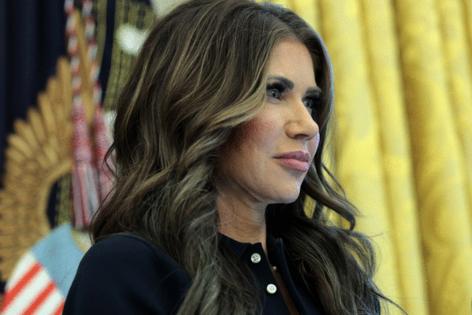US targets Chinese steel and lithium for forced-labor scrutiny
Published in Business News
The Trump administration said it will step up scrutiny of imports of steel, copper, lithium and other materials from China to enforce a U.S. ban on goods allegedly made with forced labor in the country’s Xinjiang region.
The announcement of new “high-priority sectors” targeted under the four-year-old Uyghur Forced Labor Prevention Act was included Tuesday in an annual update to the U.S. government’s enforcement efforts. It also dovetails with President Donald Trump’s broader trade goals, as he seeks to lower the U.S. trade deficit with China and pressures Beijing to curb shipments of fentanyl and precursor chemicals.
“America has a moral, economic, and national security duty to eradicate threats that endanger our nation’s prosperity, including unfair trade practices that disadvantage the American people and stifle our economic growth,” Homeland Security Secretary Kristi Noem said in a statement.
Still, the administration went ahead with the announcement at a time when Trump has sought to improve relations with his counterpart, Xi Jinping. The U.S. president last week extended a pause on higher tariffs on goods from China for 90 days as he seeks an in-person meeting with the Chinese leader.
Under the 2021 law, the U.S. government assumes that anything made even partially in the Chinese manufacturing hub of Xinjiang is produced with forced labor and cannot be imported into the U.S. Companies may win exemptions if they can provide “clear and convincing evidence” forced labor was not used.
The measure is meant to help combat alleged repression of Uyghurs and other minorities in the province of Xinjiang. Beijing has repeatedly denied accusations that minorities are compelled to work against their will.
Although the law applies to all goods, it originally singled out apparel, cotton and cotton products, tomatoes and silica-based products — including polysilicon — as high-priority sectors for enforcement. Under former President Joe Biden, the government expanded the products subject to extra scrutiny to include aluminum, polyvinyl chloride and seafood.
The Trump administration’s Tuesday announcement expands the list again to encompass red dates, caustic soda and lithium, as well as steel and copper.
The U.S. doesn’t import significant tonnage of copper from China, according to data from Morgan Stanley. In 2024, the U.S. imported about 470,000 tons of steel from China, equal to 0.5% of domestic consumption, according to the Commerce Department.
(With assistance from Joe Deaux.)
©2025 Bloomberg L.P. Visit bloomberg.com. Distributed by Tribune Content Agency, LLC.












Comments